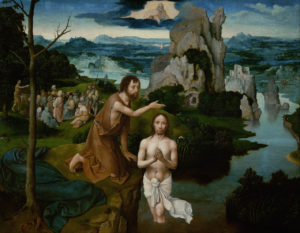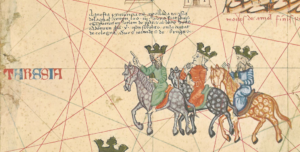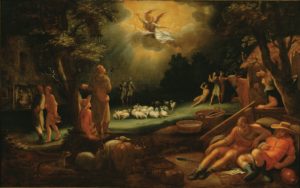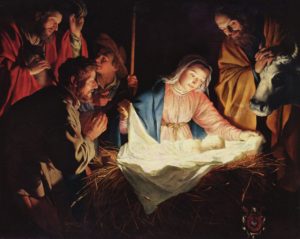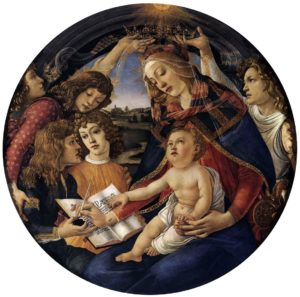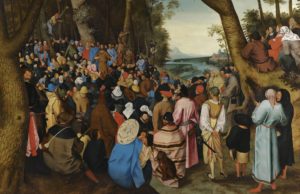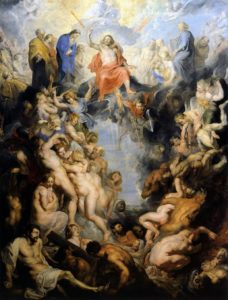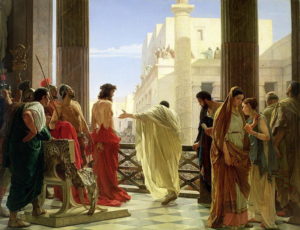Thoughts on Sunday’s Lessons for Jan. 20, 2019
First Reading: Isaiah 62:1-5
As we continue discovering Jesus during our Epiphany journey, this Sunday’s Gospel gives us John’s account of Jesus’ first miracle, changing water into wine for the wedding feast at Cana.
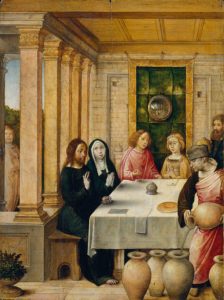
The Marriage Feast at Cana (1500), oil painting on panel by Juan de Flandes (1450-1519). The Metropolitan Museum of Art, New York City. (Click image to enlarge.)
In Sunday’s first reading we are nearing the end of Isaiah’s great book of prophecy. The people’s long exile is over. They have returned to Jerusalem, to Mount Zion, where the ruins of the first temple lie in rubble. The celebration of return is over now, and the people recognize that a long, hard time of rebuilding lies ahead. “I will not keep silent … I will not rest,” proclaims the prophet. He will call unceasingly on God’s help until the temple and the city are rebuilt. In words that set the scene for the Gospel’s wedding feast, Isaiah personifies Zion and the people as a bride and groom united in joy.
Psalm: Psalm 36:5-10
Sunday’s Psalm starts in the middle, at verse 5, just as its narrative takes a sharp turn. The first verses were discouraging: The Psalmist sung in lament of being surrounded by wicked and deceitful people who fear neither God nor evil. But we come in just as the song turns from sadness to chords of hope. In contrast with human wickedness, we sing, God showers us with amazing grace and abundant love. God’s protection and faithfulness come to us all, in that day and in this day.
Second Reading: 1 Corinthians 12:1-11
We will spend the remaining Sundays after Epiphany in a close reading in three particularly beautiful chapters in Paul’s First Letter to the Corinthians. Today and next week we’ll hear Paul’s discourse about the people of God as Christ’s body, with each member of the church enjoying certain gifts and being responsible for particular duties, much as each part of one’s body has its own function. This little Greek community probably consisted of fewer than 100 people; but that small group had plenty of problems with cliques, differences of opinion, and arguments. In this pastoral letter written from far away, Paul reminds the congregation that every member is blessed with God’s grace; every member has a role in bringing the good news of Jesus to the world.
Gospel: John 2:1-11
In the first chapter of John’s Gospel, Jesus has met John the Baptist, been baptized, and assembled his twelve apostles. Now they go out into the world, and their first stop is at a lively wedding feast, where John paints a picture of a gathering in which the wine flowed so freely that the host’s supplies ran dry. When Jesus’ mother calls on him to save the situation, he complies somewhat grudgingly, revealing new wine that’s much better than the old. There’s plenty of symbolism to work with here, but consider this point of view: Jesus’ very first miracle, according to John, occurs at a social event of feast and fellowship, where he and his disciples enjoy good food and good drink with family and friends.

